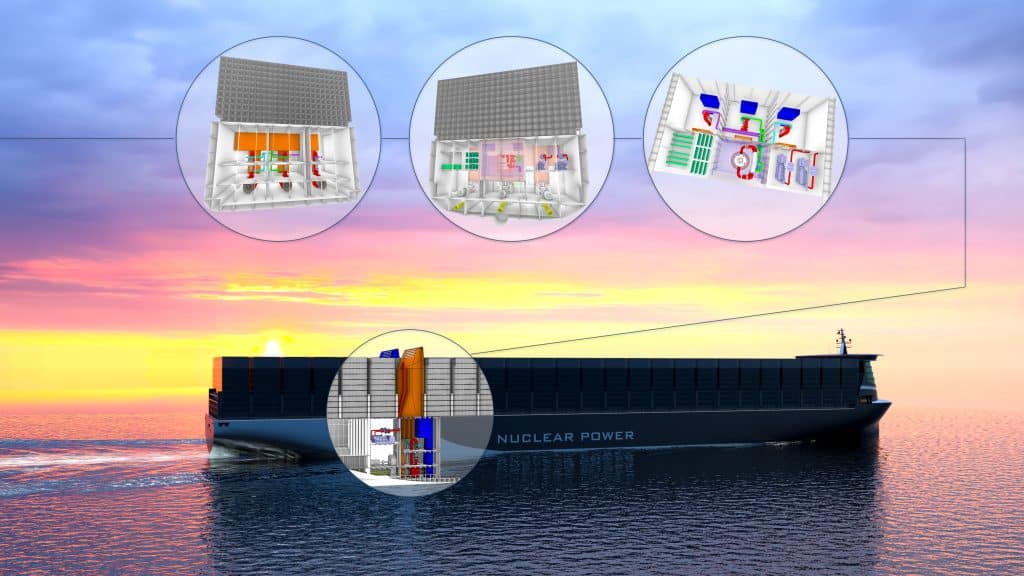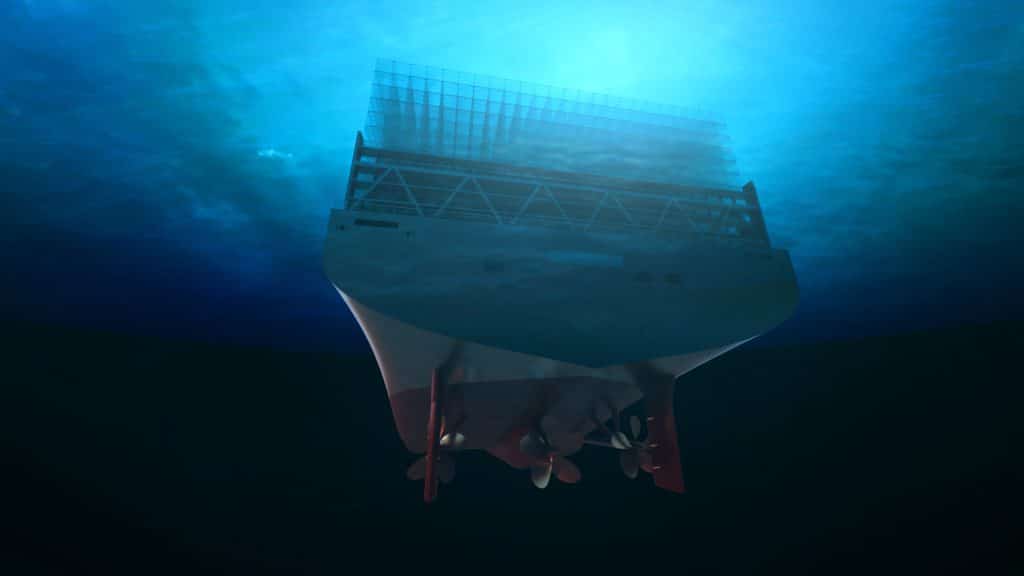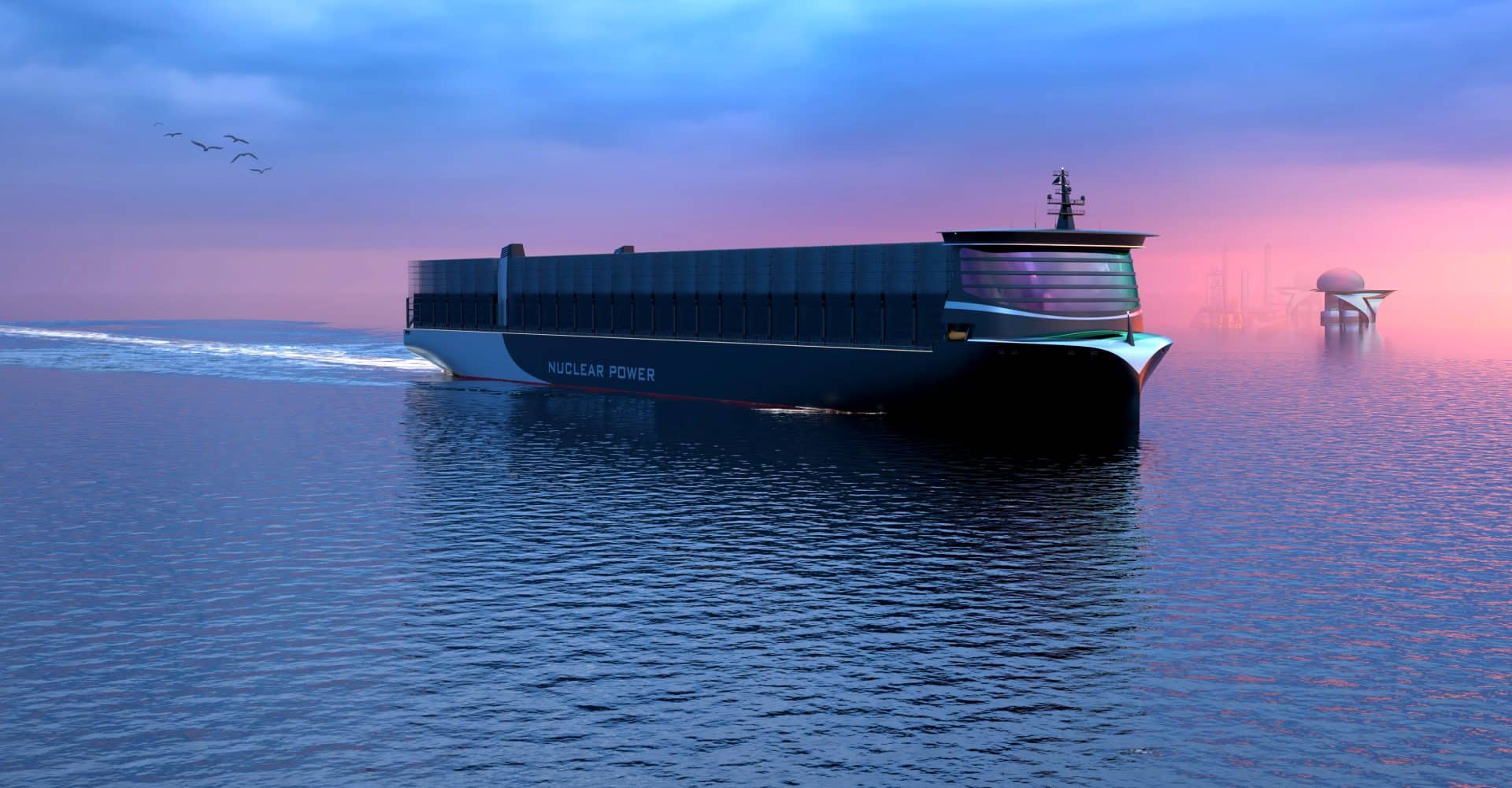Nuclear Power a Potential Game-Changer for the Shipping Industry
Research by C-Job Naval Architects has demonstrated the potential of nuclear power to become one of the main alternatives in the achievement of sustainable marine shipping. The outcome of the company’s extensive research could benefit all stakeholders in the shipping industry, from companies and investors to port authorities and regulatory bodies.
The multiple benefits of nuclear energy for large commercial vessels
Earlier research by C-Job showed that the use of nuclear energy on large ocean-going vessels could result in a 98% reduction in CO2 equivalent emissions, compared to conventional fuel-based systems.
The company’s latest study was spurred by the findings of this previous research. It identifies a method of converting nuclear energy to propulsion and electrical power that is safe, has minimal space requirements, and offers sufficient load response capabilities. The proposed system takes all the components in a nuclear power system on commercial vessels into consideration, including reactor types, shielding, heat exchangers, and turbines.
But there is another important benefit to the use of the next generation marine fuel. C-Job can irrefutably say that nuclear propulsion fundamentally changes the capital and operational expenditures of ocean-going commercial ships, potentially making their operations more profitable. The reason, in a nutshell, is that the cost of fuel, as a part of operational expenditures, grows only marginally with the higher speeds of nuclear-powered vessels.

The company considered two new-build cases: a container vessel and a bulk carrier. It determined that reactors with 25, 50, and 75 years of service life all develop higher economic speeds than conventional fuel-based options.
One possible drawback in the use of a nuclear propulsion system is the cost of its installation. However, this is offset by the aforementioned low operational expenditures and by the fact that a reactor can be used for its entire service life, either in a second ship or by extending the service life of the first ship.
“A potential solution is to adopt a structure where ship owners pay ‘rent’ for the system’s operational hours while specialist companies buy and own the reactors,” said Niels de Vries, first author on the study and Head of Energy at C-Job.

Mounting pressure to meet emissions targets
These assessments are made at a time when shipping around the world finds itself under mounting pressure. Emissions targets set by the International Maritime Organization – the global regulatory agency – mean that the industry must find ways to reach net-zero by around 2050.
C-Job will continue to research nuclear energy for marine applications in its bid to reduce the shipping industry’s harmful emissions. “We are now working with multiple stakeholders to scale down components and facilitate ship integration.”
But there’s more. C-Job has received its first commission to conduct research into the design of a nuclear-powered commercial vessel. De Vries hopes that this will inspire more ship owners to learn about the system’s details and return on investment. He says, “It’s only when owners become willing to invest and build [nuclear-powered] ships that we can develop a concrete framework for the use of nuclear propulsion systems.”
The study’s peer-reviewed findings were presented at the 15th edition of the International Marine Design Conference, held in June 2024, in Amsterdam, the Netherlands.
The full research paper is available here: https://proceedings.open.tudelft.nl/imdc24/article/view/912
